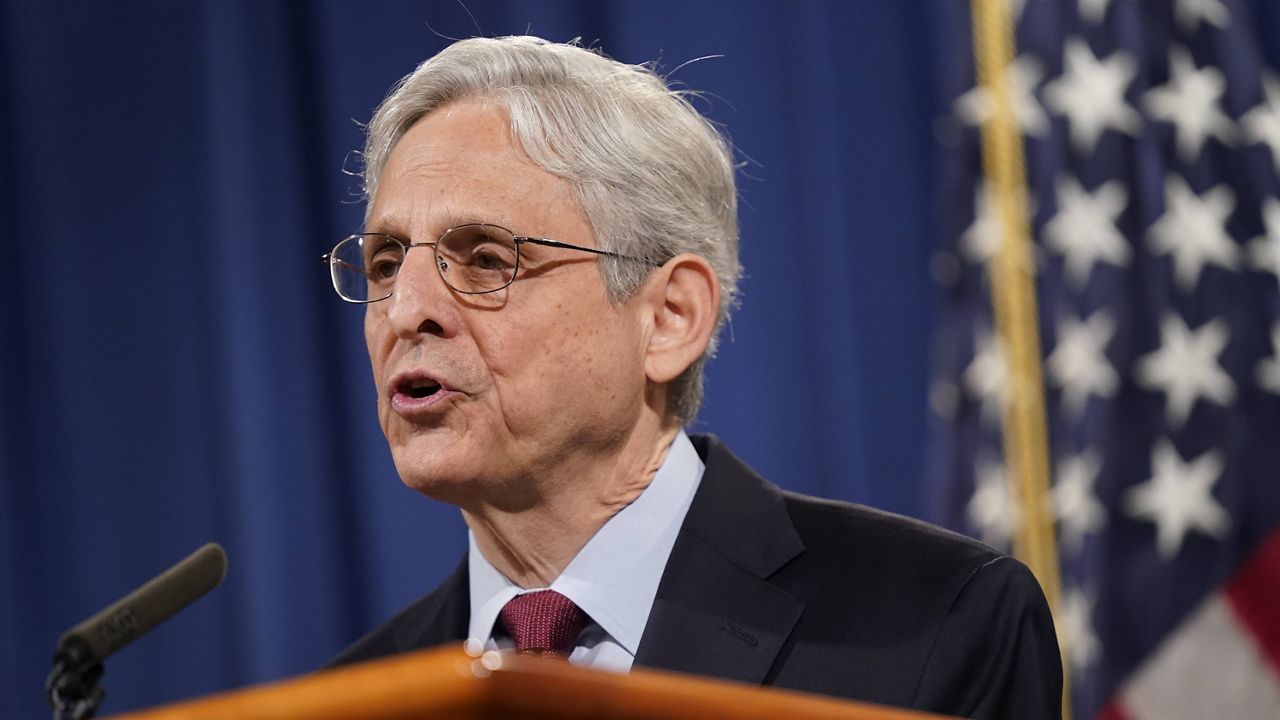The Department of Justice on Tuesday announced a sweeping new policy which limits the use of “chokeholds” and “carotid restraints” — unless deadly force is authorized — as well as the circumstances by which unannounced entries — or “no-knock” entries — can be utilized.
“Building trust and confidence between law enforcement and the public we serve is central to our mission at the Justice Department,” Attorney General Merrick Garland said in a statement.
“The limitations implemented today on the use of ‘chokeholds,’ ‘carotid restraints’ and ‘no-knock’ warrants, combined with our recent expansion of body-worn cameras to DOJ’s federal agents, are among the important steps the department is taking to improve law enforcement safety and accountability,” he added.
The new policy comes a year after George Floyd was killed by a Minneapolis police officer who knelt on his neck, which sparked worldwide protests and a nationwide debate over police reform, including the use of chokeholds and other neck restraints. Some city police departments around the country have already banned the practice.
It also follows the death of 26-year-old Breonna Taylor after officers carried out a "no-knock" warrant at her home in Louisville in March 2020, even though she nor her partner inside were the subject of the investigation and were asleep at the time.
According to the DOJ, the revised policy came in the wake of a review by Deputy Attorney General Lisa Monaco, the agency’s No. 2.
“As members of federal law enforcement, we have a shared obligation to lead by example in a way that engenders the trust and confidence of the communities we serve,” Deputy Attorney General Monaco said. “It is essential that law enforcement across the Department of Justice adhere to a single set of standards when it comes to ‘chokeholds,’ ‘carotid restraints’ and ‘no-knock’ entries. This new policy does just that and limits the circumstances in which these techniques can be used.”
The DOJ’s law enforcement agencies — which include the U.S. Marshals Service, the FBI, the Federal Bureau of Prisons and the National Institute of Corrections, as well as the Bureau of Alcohol, Tobacco, Firearms and Explosives (ATF) and the Drug Enforcement Administration (DEA) — will be barred from using so-called “chokeholds” and “carotid restraints” unless they are authorized to use deadly force.
Deadly force authorization is defined by the DOJ as “when the officer has a reasonable belief that the subject of such force poses an imminent danger of death or serious physical injury to the officer or to another person.”
Regarding unannounced entries, the DOJ says the new policy “generally limits the use of ‘no knock’ entries in connection with the execution of a warrant to situations where an agent has reasonable grounds to believe that knocking and announcing the agent’s presence would create an imminent threat of physical violence” to either the agent or another person.
The policy, the agency said, is “narrower than what is permitted by law.”
“In setting the policy this way, the department is limiting the use of higher-risk “no knock” entries to only those instances where physical safety is at stake,” a release from the DOJ says.
The DOJ acknowledged that there will be “rare circumstances” under which an unannounced entry must be made without an imminent safety threat, but the agent would require approval "from the head of the law enforcement component and the U.S. Attorney or relevant Assistant Attorney General" before seeking authorization.



